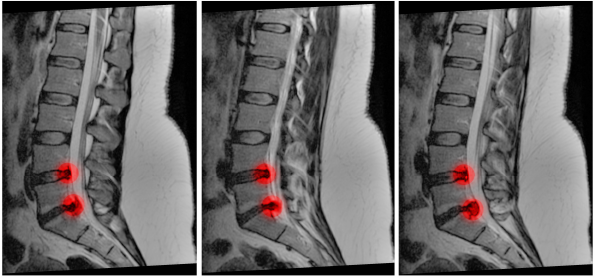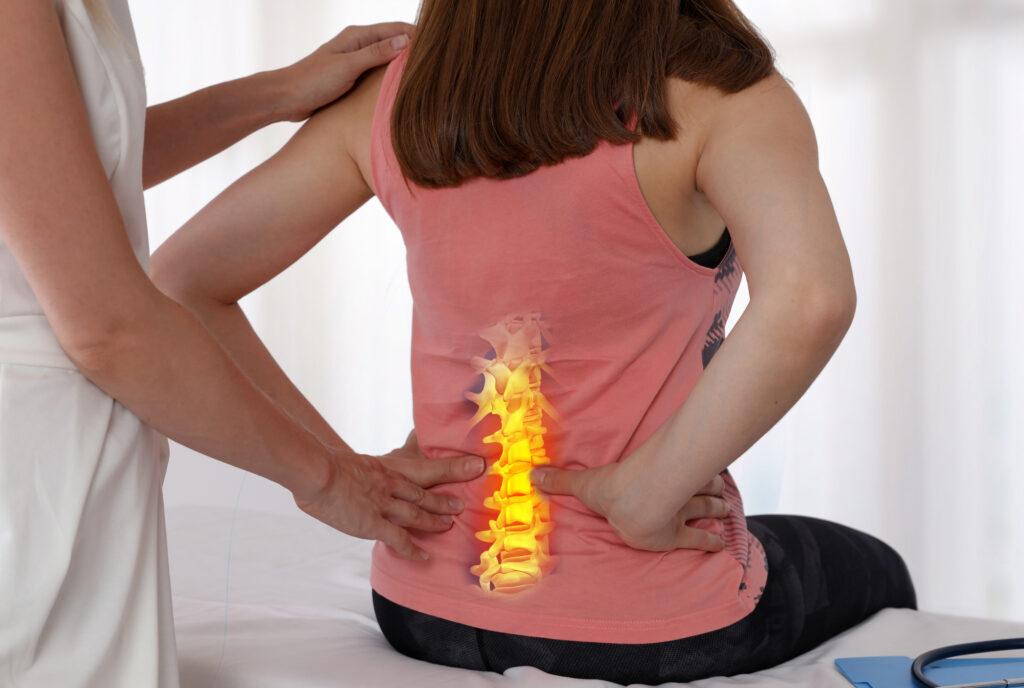At Cantor Grana Buckner Bucci, we understand that we have an opportunity to guide our clients towards a better future, and we take that responsibility seriously. If you are experiencing cauda equina syndrome after an accident or due to medical malpractice, contact us spinal cord injury lawyers today for a free consultation. We will guide you through the legal process and ensure you receive the compensation you deserve for your injuries.
What is Cauda Equina Syndrome?
The term “cauda equina” literally means “horse’s tail” in Latin and refers to the bundle of spinal nerve roots located at the base of the spine. These nerve roots send and receive messages to and from your legs, feet, and pelvic organs. Damage to this bundle of nerves often leads to paralysis, loss of bowel or bladder control, and sexual dysfunction.

Types of Cauda Equina Syndrome
There are two types of cauda equina syndrome: acute and chronic.
Acute Cauda Equina Syndrome
Acute cauda equina syndrome is a severe condition that occurs suddenly. People with acute cauda equina will likely need surgery within 24 to 48 hours.
Chronic Cauda Equina Syndrome
If you’ve had symptoms of cauda equina syndrome for an extended period before seeking treatment, it is labeled chronic. Cauda equina syndrome is also labeled chronic when there is permanent damage to your nerves that surgery could not fix. This means you will likely have symptoms for the rest of your life.
Causes of Cauda Equina Syndrome
There are many different causes of cauda equina syndrome. Some of the most common causes include:
- Spinal cord injury
- Herniated discs in the lumbar spine
- Infection or inflammation of the spinal cord
- Spinal lesions or tumors
- Post-surgical complications
- Injuries to the lower back
- Narrowing of the spinal canal

Symptoms of Cauda Equina Syndrome
Compression, irritation, or other trauma to the spinal nerve roots can result in multiple symptoms, ranging from mild sciatica to complete paralysis. However, some of the most common symptoms include:
- Severe low back pain
- Loss of bowel and bladder function
- Muscle weakness in both legs
- Sensory loss in both legs
- Difficulty walking
- Sensory and motor deficits
- Pain or weakness in the buttocks and thigh area
How is Cauda Equina Syndrome Diagnosed?
It is difficult to diagnose cauda equina syndrome because it is a rare disorder that varies in intensity and evolves slowly over time. Additionally, early symptoms such as loss of bowel control are similar to other spinal cord injuries.
Once you seek medical treatment, a diagnosis of cauda equina syndrome can be made quickly based on the signature symptoms of cauda equina syndrome and radiologic imaging in the form of MRI or CT scans.
How is Cauda Equina Syndrome Treated?
Cauda equina syndrome is usually a medical emergency, requiring immediate surgery to decompress the nerves so as to prevent permanent injury. The longer the delay in decompressing the spinal cord and nerves, the more likely the patient will suffer permanent loss of motor and sensory function. After surgery victims may need:
- Physical Therapy – Physical therapy can help people with spinal cord injuries improve their strength, flexibility, and range of motion. Physical therapists may also use massage, heat, and ice to help reduce pain and inflammation. Additionally, physical therapy can help improve functional abilities and quality of life.
- Occupational Therapy – Occupational therapy helps improve people’s ability to perform activities of daily living. Occupational therapists may assist with bathing, dressing, and grooming tasks. They may also help improve fine motor skills and range of motion. Additionally, occupational therapy can help reduce anxiety and depression.
- Medication – Pain medication coupled with self-catheterization helps recover bladder and bowel function.
What Are the Long-Term Effects of Cauda Equina Syndrome?
The long-term effects of cauda equina syndrome vary depending on the severity of the condition. Some people may recover completely, while others may experience partial or complete paralysis. Additionally, some people may suffer from chronic pain, long-term bladder and bowel incontinence, or sexual dysfunction.

Can I File a Lawsuit For Cauda Equina Syndrome?
Spinal cord injuries such as cauda equina syndrome are not uncommon in cases handled by personal injury or motor vehicle accident trial lawyers. Additionally, in situations where healthcare providers fail to recognize, diagnose, and treat the condition timely, viable medical malpractice claims may exist.
Cauda Equina Syndrome is a serious condition that can have lifelong implications. If you or a loved one has been diagnosed with cauda equina syndrome, it is important to seek experienced legal counsel to protect your rights. An experienced attorney can help you recover the compensation you deserve.
How Much Is My Claim Worth?
This is difficult to say without knowing more about your case. An experienced car accident lawyer can help you assess the damages and file a claim for compensation.
Some of the damages that you may be able to recover include:
- Medical expenses – This includes past and future medical bills.
- Lost wages – If you cannot work due to your injury, you can recover any lost earnings.
- Pain and suffering – Includes emotional distress and anguish related to your injury.
Contact Cantor Grana Buckner Bucci Today for a Free Consultation
If your injury was caused by negligence from medical malpractice, an auto accident, or other accidents, turn to us to see how we can help. The Virginia Trial Firm lawyers are well versed in the mechanism, symptoms, and treatment of spinal cord injuries, and you may be able to sue the person or entity that caused your injury and recover damages for your losses.
Call for a free consultation today at (855) 936-1747.












